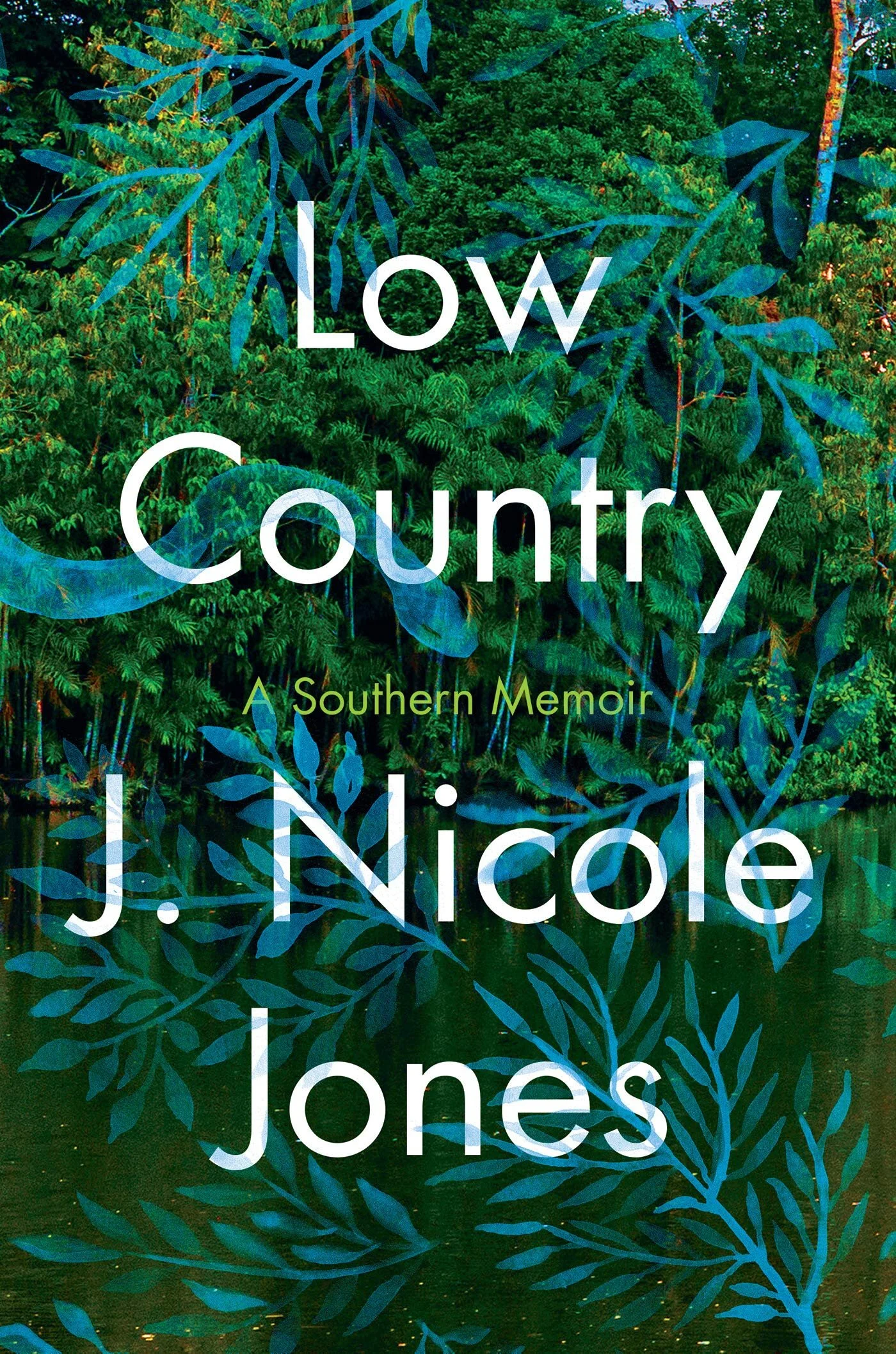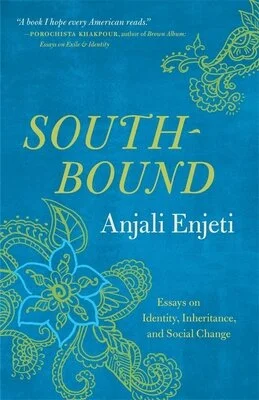Hot Off the Shelf: Low Country: A Southern Memoir by J. Nicole Jones
I received a free copy of this book in exchange for an honest review and I honestly LOVED it.
post contains an affiliate link
There are few types of books I love more than a good Southern memoir. Maybe it’s because I’m a Southerner myself, but I’m convinced that nobody writes quite like we do. Through idioms and folklore, storytelling is woven into the very fabric of our language, and I don’t just mean the dialect. If you want a story––whether shocking, funny, gripping or all of the above––a Southerner can conjure one for you with minimal prompting.
This is why I LOVED Low Country by J. Nicole Jones. It has everything you want in a good Southern memoir: ghostly gothic shit, terrifying weather, and a family that acts wilder’n hell, by god.
Before I dive into more, the synopsis from Goodreads:
The Glass Castle meets Midnight in the Garden of Good and Evil in this incandescent debut memoir of one family's changing fortunes in the Low Country of South Carolina, a tale inseparable from the region's storms and shipwrecks, ghosts and folklore.
J. Nicole Jones is the only daughter of a prominent South Carolina family, a family that grew rich building the hotels and seafood restaurants that draw tourists to Myrtle Beach. But at home, she is surrounded by violence and capriciousness: a grandfather who beats his wife, a barman father who dreams of being a country music star. At one time, Jones's parents can barely afford groceries; at another, her volatile grandfather presents her with a fur coat.
After a girlhood of extreme wealth and deep debt, of ghosts and folklore, of cruel men and unwanted spectacle, Jones finds herself face to face with an explosive possibility concerning her long-abused grandmother that she can neither speak nor shake. And through the lens of her own family's catastrophes and triumphs, Jones pays homage to the landscapes and legends of her childhood home, a region haunted by its history: Eliza Pinckney cultivates indigo, Blackbeard ransacks the coast, and the Gray Man paces the beach, warning of Hurricane Hazel.
Like I said, Low Country has all the makings for the ideal Southern memoir. But it’s more than that––in the same way you can have all the ingredients for the world’s best chocolate chip cookies but if you don’t know how to combine them in the right way then they’ll come out miserably. J. Nicole Jones has all the ingredients, and she combines them perfectly. My copy of the book has so many underlines and highlights of sentences and turns of phrase I’d give anything to have written.
What I find particularly interesting about her storytelling style is the way she breaks the fourth wall. Low Country is immersive and it’s easy to get sucked into the story and the gorgeous way Jones tells it, but she’s also conscious of telling a story and lets the reader know. There are several instances where she breaks the fourth wall to tell you we’ll be returning to a particular storm or a particular family member or a particular incident later in the book. This isn’t jarring at all––it’s actually so seamlessly worked in that as you read you hear it as a voice. The memoir isn’t trying to make you time travel back to Jones’ childhood. The storytelling device of her talking to you in present-day telling you the story of her life as she’s looking back on it is an intentional and well-done narrative device.
Another aspect of the book I adored is the class straddling and the changing financial fortunes in her family. At one point one of her grandfathers is a millionaire and later loses his money. At one point her parents are solidly middle class and after a string of misfortunes beyond their control, it becomes that they can barely afford groceries. Jones changes socioeconomic classes multiple times in her life. Although perhaps not to the extreme degree Jones did, I think this is more common than people might realize. Sometimes all it takes is one new job or one accident to thrust you up or down the class ladder. Jones articulates this monetarily and emotionally jarring experience especially well.
She also does an excellent job of interrogating domestic violence in a real and honest way without shaming the women she loves who have suffered from it. That’s extremely difficult to do, especially when the victim/survivor is someone you love and care deeply about––and it’s made even more challenging when you perceive the victim/survivor as having agency and support systems that would allow them to escape. It’s complicated and Jones handles the many emotions that can arise in situations like this with grace and compassion.
I also love that the setting a Myrtle Beach, a popular tourist destination. I’m the kind of person who travels to a place and immediately wonders what the locals’ lives are like. I’m forever asking, “How do they pay their bills year-round if the business is only open seasonally?” and “How does it feel for them to have to work so much when the weather is perfect and only get sufficient time off to enjoy the place when the weather has turned?” Though Jones doesn’t necessarily address these questions directly, hearing how she and her family engage with the energy of tourism in their hometown is fascinating to me.
I’m also convinced every Southerner has a ghost story or two and that’s part of what makes us such good storytellers. Whether you believe ghosts are real or not, there’s not much point to a ghost story if it’s not entertaining. So if you’re part of a culture that generally believes in ghosts, spirits, haints, or whatever you may call them, and it’s customary to spread those stories around, you learn how to get good at the telling or no one will listen to you. It makes me think of the old Nickelodeon show Are You Afraid of the Dark?. Each of Jones’ ghost stories sound as though they were submitted for the approval of the Midnight Society and got thumbs-ups all around.
And then there is the terrifying weather. Since Myrtle Beach is on the coast, it’s plagued by hurricanes, though every Southerner has at least a handful “act of god” weather stories. I grew up inland, so mine have more to do with tornadoes and unexpected inches of snow the county was ill-prepared for. Truthfully, hurricanes scare me more than either of those because a hurricane is basically a tornado with water and tornadoes are damn frightening on their own. Jones does an especially good job of making the hurricanes, especially Hurricane Hazel, a kind of standalone character. I think of it like the White Walkers in Game of Thrones––all the mortal drama is playing out and it’s fascinating, but meanwhile there’s an even greater threat looming that could render all the human conflicts null and void.
There was so much I enjoyed about Low Country that I’ll probably read it five more times. Anyone I have to buy a present for will be getting it as a gift. But I don’t buy presents for that many people, so go get yourself a copy. You can buy directly from the publisher, Catapult, from Bookshop.org using my affiliate link (thank you!) or your favorite indie bookstore.






